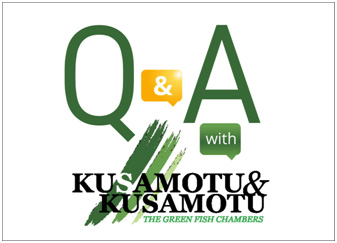While the whole world continues to battle with the coronavirus pandemic, the Federal and State governments have intervened by introducing targeted measures to stabilise the economy and restrict movements in order to control further spread of the virus. As a result of the lockdown and social distancing policies of the government, it has become more challenging if not impossible for most businesses to keep their financial wheels turning, due to lack of business activities and the general uncertainty in the global economic environment.
While some businesses have suspended operations, it is interesting to note that some businesses are experiencing a boom. However, in the midst of this unprecedented disruption in global and economic activities, taxpayers are unclear about the status, existence and extent of their tax liabilities.
We have provided answers to some of the inquiries of Nigerian taxpayers regarding their tax obligations since the outbreak of the coronavirus below:
1. Are tax liabilities subsisting in this period of the pandemic?
Advertisement
Yes. Tax is a compulsory levy imposed by law on individuals, companies, income, properties and certain transactions. The ongoing pandemic does not automatically absolve taxpayers of their tax obligations. Thus, until the requisite law is amended or an official statement is released to so declare by the relevant tax authorities, tax will continue to accrue. Failure to pay tax as at when due attracts sanctions, which may be in the form of interest, penalties, and/or imprisonment in some cases.
2. My company has suspended operations, as our services cannot be rendered remotely. Will my company be liable to pay Companies Income Tax?
The law governing Companies Income Tax (CIT) does not recognize temporary cessation of business as a basis for exemption from CIT. However, since CIT is chargeable on the profit made by a company after all allowable deductions have been made, you can consult with your Lawyer and Tax Consultant who will guide you on how to file your returns and show through your company’s account that profit was not made during certain period or that your company has no taxable income.
Advertisement
3. I am unable to get Dollars to remit Withholding tax in Dollar-denominated transactions my company was involved in, due to forex scarcity. Can I delay the remittance till when I am able to get dollars? Please advise.
Generally, certain tax liabilities such as Withholding taxes and Value Added Taxes are to be paid in the currency of the transaction. However, having taken note of the problems taxpayers are facing in sourcing foreign exchange during this period to settle tax liabilities on their Forex-denominated transactions, the FIRS has therefore permitted payment of the Naira equivalent, based on the prevailing Investors & Exporters Forex window rate on the particular day of payment.
4. Is there any palliative measure in respect of withholding and pay-as-you-earn (PAYE) taxes?
Neither the FIRS nor the LIRS has announced any palliative measures in respect of Withholding tax (WHT) and pay-as-you-earn (PAYE) taxes as at the time of publishing this question and answer. The implication of this is that WHT and PAYE stands payable as due. However, regarding PAYE, the workforce has experienced two circumstances during this outbreak. First is the situation where employers are unable to pay their employees or they only paid a faction of the designated salaries. You may contact your Lawyer and Tax Consultant for guidance on how to file your PAYE returns in the light of the above-mentioned circumstances.
Advertisement
5. Is it true that employers who retain their employees during the lockdown period will automatically enjoy a refund of 50% PAYE?
This is not true. However, there is a bill (Emergency Economic Stimulus Bill 2020) currently being sponsored by the House of Representatives. The Bill, if passed into law, seeks to enhance job security by offering 50% income tax refund on the total actual amount due or paid as pay-as-you-earn (PAYE) tax under the Personal Income Tax Act, 2004 (as amended), to Nigerian companies who retain all their employees from 1st March 2020 to 31st December 2020.
6. I learnt there is a circular from the FIRS demanding that companies pay tax before the due date. Can you please clarify the contents of the circular?
The circular in question dated 22nd April, 2020 was directed to companies in some sectors of the economy which the FIRS believes have been experiencing a boom and significant increase in their income since the lockdown. In the said circular, the Executive Chairman of FIRS, Muhammad Nami, appealed to such corporate bodies in telecommunications, financial institutions, e-commerce, supermarkets and manufacturers of certain products to co-operate with the FIRS by making special arrangements to pay their taxes before the due date.
Advertisement
The circular in our opinion, does not have the force of law and it does not impose any obligation on the said companies to commence payment of their annual returns earlier than their due dates, it is more of a clarion call from the FIRS for support to ease the cash flow gaps being experienced by governments at this critical time.
7. Is the government planning to reduce tax rates or waive any tax obligation in view of the on-going pandemic and the attendant economic challenges?
Advertisement
Presently, there is no known move by the Federal or State governments to reduce tax rates or announce a waiver. However, the Minister for Finance, Budget and National Planning, Zainab Ahmed, on the 7th of April, 2020, hinted during an interview that the Federal government would rather consider the option of tax deferral. She however added that corporate organizations and individuals could get tax reliefs based on their donations towards the relief fund for the COVID-19 pandemic.
That said, it should be noted that the Finance Act, 2019 has already granted significant tax reliefs to specific companies, particularly small-scale businesses. The Act completely exempts SMEs from Companies Income Tax (CIT) and also reduced CIT rates for Medium-sized Enterprise from 30% to 20%.
Advertisement
8. How are companies categorized under the Finance Act, 2019? What are “SMEs”, “Medium sized Enterprise” and “Companies other than Small or Medium Sized Companies”?
Companies with annual gross turn-over of N25, 000,000.00 (Twenty-Five Million Naira) or less are categorized as small companies. A medium-sized company is defined as a company having an annual gross turnover of over N25, 000,000.00 (Twenty-Five Million Naira) per annum but below N100, 000, 000.00 (One Hundred Million Naira). Such Companies shall pay Income Tax at the rate of 20% while companies other than small or medium sized companies are defined as large companies and their income tax rate is 30%.
Advertisement
9. What are the measures introduced by the Federal Government to cushion the effect of the pandemic on taxpayers?
The Federal Government of Nigeria, through the Federal Inland Revenue Service (F.I.R.S) has introduced certain reliefs for taxpayers during and after the outbreak of COVID-19. These measures include the following:
a) Extension of Timeline for Filing Tax Returns: The Value Added Tax (VAT) and withholding tax returns which were stated by the relevant tax laws to be filed on the 21st day of every month has now been extended to the last working day of the month following the month of deduction. In the same vein, filing of companies’ income tax returns has been extended by one month from the due date.
b) E-payment of Tax: Introduction of online payment of tax and electronic processing of tax clearance certificates will serve to contain and mitigate tax liabilities that may likely arise after Covid-19.
c) E-filing of Tax Returns: Filing of tax returns by taxpayers can now be done electronically via efiling.firs.gov.ng web platform or by a registered email with the tax authority.
d) Exemption of Audited Accounts for Filing Tax Returns: Taxpayers may file tax returns without financial statements attached thereto. However, the audited accounts must be submitted within 2 months after the revised due date of filing.
e) Extension of Personal Income Tax (PIT): The deadline for the filing of PIT returns has been extended for personnel of Foreign Affairs, Military and Police, and non-resident persons by three months from 31 March 2010 to 30 June 2020.
10. What is the deadline for filing tax returns in Lagos State?
The Lagos State Internal Revenue Service (LIRS) extended the deadline for filing annual tax returns for employees and self-employed persons by two months from 31 March 2020, thus bringing the deadline for filing the returns to 31st of May 2020. The LIRS electronic tax platform via https://etax.lirs.net is open for all tax operations and administration matters including filing of annual returns.
11. Will the LIRS continue to conduct tax audits during this period?
No. The LIRS has suspended all tax audits earlier scheduled till further notice. This move is in line with the law on social distancing and the lockdown policy of the Lagos State Government.
12. What can I do to better manage my tax affairs during and after this pandemic?
As a company or individual, endeavour to familiarize yourself with the deadlines/timelines for filing returns in order to prevent penalties for late returns and filings. You can also take advantage of Tax Credit, Pioneer Status and Tax Holidays, which may be applicable to your company. You will need to consult with your lawyer for more information on this.
13. If a business has employees all over the world and some of those employees are stuck working in Nigeria because of the ongoing pandemic, does that mean that income taxes on those employees will be paid in Nigeria?
The basis of liability to tax under the Personal Income Tax Act is residency. A person is considered resident if such person is physically in Nigeria for at least 183 days (including leave and temporary absence) in any 12-month period. If such an employee has been in Nigeria for the prescribed time, then the person may be liable to tax in Nigeria.
In the wake of the coronavirus pandemic, the Organisation for Economic Co-operation and Development (OECD) issued guidelines on how to interpret tax treaty provisions that define when a business or individual has taxable presence in a country. The OECD guideline prescribes that tax authorities should focus on the ordinary location of operations rather than the temporary location during this ongoing pandemic. As such, an employee who would otherwise be working in the UK, but who is currently in Nigeria due to the government-imposed restrictions on travel, should be considered as working in the UK and not liable to pay tax in such a temporary location.
It should however be noted that the OECD is only of persuasive effect and does not have the force of law.
Got more questions on the above subject matter? Send your enquiries to [email protected].
Kusamotu & Kusamotu
(The Greenfish Chambers)
2A, Udi Street, Osborne Foreshore Estate,
Ikoyi, Lagos State.
Email: [email protected]
Website: www.kusamotu.com
Tel: +234 (0) 8147203068
Disclaimer: Nothing in this Article should be construed as legal advice from any of our lawyers or the firm. The answers are a general summary of developments, principles, circulars and press releases of interest on the subject of discussion and may not apply directly to any specific circumstances. Professional advice should therefore be sought before any action is taken.






